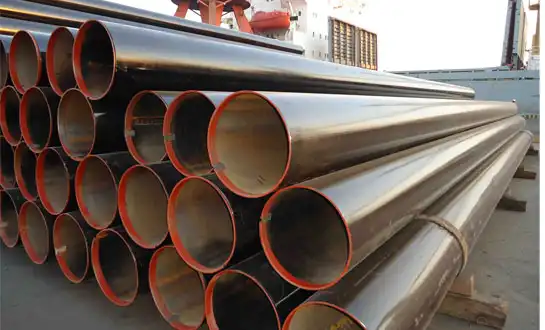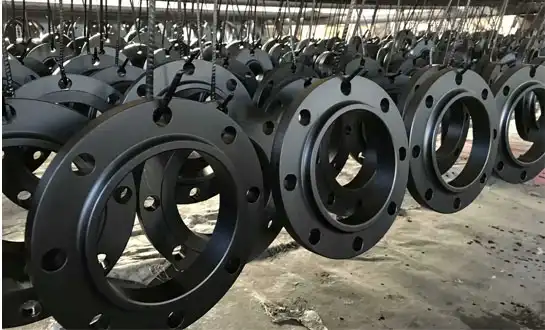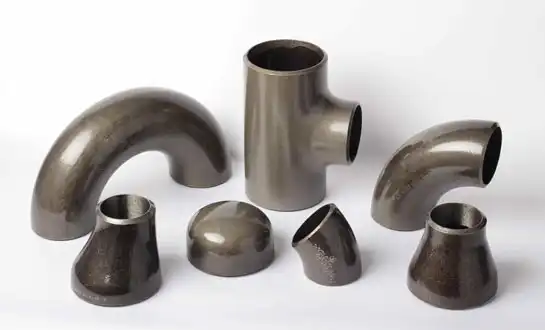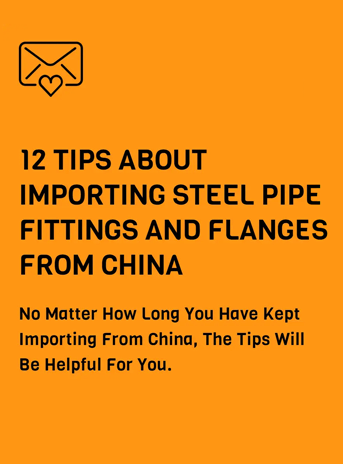Spotting Counterfeit Flanges: 6 Authentication Methods for API 6A and ASME Certified Product
The proliferation of counterfeit products in the global marketplace poses significant risks to industrial operations, particularly when dealing with critical components like industrial flanges. Counterfeit flanges can lead to catastrophic failures, safety hazards, and costly downtime across various industries. This comprehensive guide presents six proven authentication methods specifically designed for API 6A and ASME certified products, enabling procurement professionals and engineers to verify the authenticity of industrial flanges before installation. Understanding these verification techniques protects against substandard materials that compromise system integrity and operational safety. Each authentication method addresses specific aspects of product verification, from visual inspection techniques to advanced testing protocols that ensure compliance with stringent industry standards.
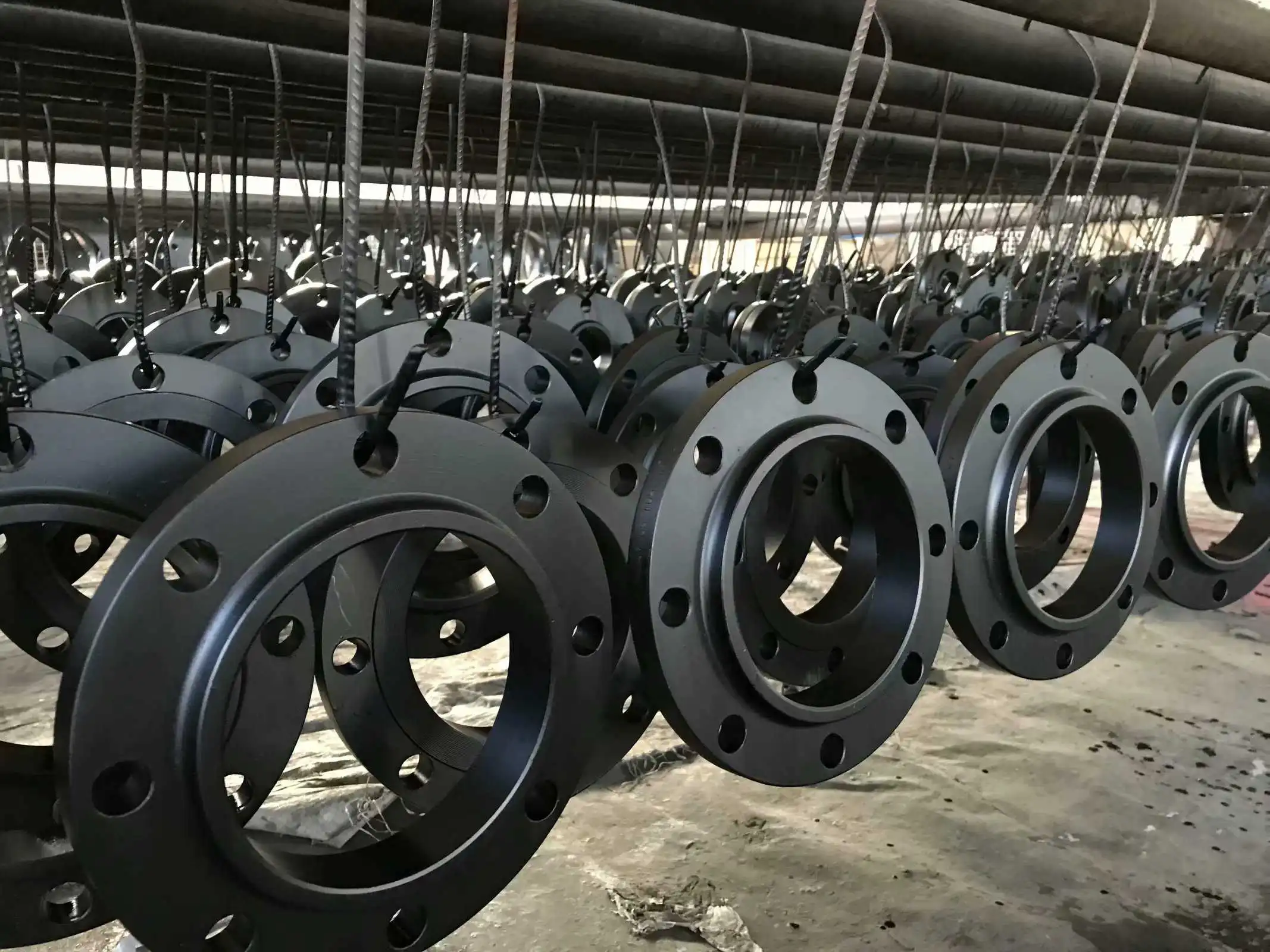
Visual Inspection and Documentation Verification Methods
Certificate Authentication and Traceability Documentation
Authentic industrial flanges come with comprehensive documentation packages that include material test reports, manufacturing certificates, and third-party inspection records from accredited organizations. Genuine API 6A and ASME certified products feature detailed traceability documentation that tracks materials from steel mill origins through final manufacturing processes. Certificate verification involves cross-referencing heat numbers, chemical compositions, and mechanical properties with original mill test certificates to ensure complete material traceability. Counterfeit industrial flanges typically lack proper documentation or present forged certificates with inconsistent formatting, missing signatures, or incorrect technical specifications. Legitimate manufacturers maintain detailed quality records that can be verified through direct contact with certification bodies, while counterfeit products often reference non-existent test facilities or fabricated inspection reports that cannot withstand scrutiny.
Physical Marking and Identification Code Analysis
Authentic industrial flanges display permanent markings that include manufacturer identification, material specifications, pressure ratings, and certification symbols applied using standardized methods. API 6A certified flanges feature specific marking requirements including manufacturer's name, material designation, working pressure rating, and API monogram symbol applied through approved marking techniques. ASME certified products display the ASME symbol, manufacturer identification, and relevant code section designations stamped or etched using controlled processes that ensure marking permanence and legibility. Counterfeit industrial flanges often exhibit poor marking quality, incorrect symbol placement, misspelled manufacturer names, or missing certification marks that indicate non-compliance with established standards. Verification involves comparing marking placement, font styles, and symbol accuracy against authentic reference samples while checking for proper depth, clarity, and permanence of applied markings.
Surface Finish and Manufacturing Quality Assessment
Genuine industrial flanges demonstrate consistent surface finishes, precise machining tolerances, and uniform material quality that reflect professional manufacturing processes and quality control standards. Authentic products exhibit smooth flange faces, accurate bolt hole positioning, and consistent wall thickness throughout the component, indicating proper manufacturing equipment and skilled workmanship. Surface irregularities, rough machining marks, inconsistent dimensions, or visible porosity often indicate counterfeit products manufactured using substandard processes or inferior equipment. Industrial flanges from reputable manufacturers display uniform material structure without inclusions, cracks, or surface defects that could compromise performance under operating conditions. Quality assessment includes examining weld seams for proper penetration and finish, checking dimensional accuracy against published specifications, and verifying surface preparation meets specified requirements for coating application or direct service exposure.
Advanced Testing and Material Analysis Techniques
Chemical Composition and Material Property Verification
Laboratory analysis of chemical composition provides definitive verification of material authenticity by comparing actual elemental content against specified requirements for API 6A and ASME certified products. Portable X-ray fluorescence analyzers enable field verification of major alloying elements in industrial flanges, detecting deviations from specified compositions that indicate counterfeit materials or grade substitution. Comprehensive chemical analysis includes carbon content, alloy percentages, and trace elements that significantly impact mechanical properties and corrosion resistance of the finished product. Counterfeit industrial flanges frequently exhibit chemical compositions that deviate from specified requirements, using lower-grade materials or incorrect alloy percentages to reduce manufacturing costs while compromising performance characteristics. Material certification requires correlation between analyzed chemistry and mechanical properties, ensuring both composition and performance meet stringent requirements for critical service applications.
Mechanical Testing and Performance Validation
Mechanical property verification through tensile testing, hardness measurement, and impact testing confirms that industrial flanges meet specified strength requirements for their intended service conditions. API 6A and ASME standards specify minimum mechanical properties including yield strength, tensile strength, elongation, and impact toughness that must be verified through standardized testing procedures. Authentic products consistently meet or exceed these requirements, while counterfeit flanges often fail to achieve specified properties due to improper heat treatment or inferior base materials. Industrial flanges undergo rigorous testing protocols including hydrostatic pressure testing, proof load testing, and fatigue analysis to verify performance under actual operating conditions. Testing documentation must correlate with material certificates and manufacturing records to ensure complete traceability and compliance with applicable standards throughout the verification process.
Metallurgical Structure and Heat Treatment Analysis
Microscopic examination of metallurgical structure reveals important information about manufacturing processes, heat treatment effectiveness, and material authenticity in industrial flanges. Authentic API 6A and ASME certified products exhibit proper grain structure, uniform carbide distribution, and appropriate phase composition resulting from controlled manufacturing processes and proper heat treatment cycles. Metallographic analysis identifies heat treatment anomalies, improper cooling rates, or inadequate temperature control that characterize counterfeit products manufactured without proper process controls. Industrial flanges require specific metallurgical structures to achieve desired mechanical properties and corrosion resistance, with deviations indicating non-compliant manufacturing processes or material substitution. Professional metallurgical evaluation includes hardness mapping, microstructural analysis, and correlation with mechanical properties to ensure complete compliance with certification requirements and performance specifications.
Supplier Authentication and Quality System Verification
Manufacturer Accreditation and Certification Status
Verification of manufacturer accreditation involves confirming API 6A licensing, ASME authorization, and ISO 9001 certification status through direct contact with certifying organizations and review of current authorization documents. Legitimate manufacturers of industrial flanges maintain active certifications that can be verified through official databases and certification body records, while counterfeit suppliers often claim false certifications or reference expired authorizations. API maintains a comprehensive database of licensed manufacturers that can be consulted to verify legitimate suppliers and their authorized product scope for industrial flanges and related components. ASME authorization requires regular audits, quality system maintenance, and continuous compliance monitoring that counterfeit suppliers cannot sustain due to inadequate quality systems and manufacturing capabilities. Verification includes checking manufacturer facility locations, authorized product ranges, and current certification status to ensure legitimacy and compliance with applicable standards.
Quality Management System Assessment
Comprehensive quality system evaluation examines manufacturer procedures, quality control processes, and documentation systems that support production of authentic industrial flanges meeting API 6A and ASME requirements. Legitimate manufacturers implement robust quality management systems featuring controlled processes, calibrated equipment, qualified personnel, and comprehensive record-keeping that enables full product traceability and quality verification. Site audits and quality system assessments reveal the depth of manufacturer commitment to quality, process control, and continuous improvement that characterizes authentic suppliers of certified industrial flanges. Counterfeit suppliers typically lack proper quality systems, adequate testing equipment, or qualified personnel necessary to manufacture products meeting stringent certification requirements. Quality assessment includes reviewing supplier quality manuals, inspection procedures, calibration records, and personnel qualification documents that demonstrate capability to produce authentic certified products consistently.
Supply Chain Transparency and Traceability Verification
Establishing complete supply chain transparency ensures that industrial flanges originate from authorized manufacturers and pass through legitimate distribution channels without alteration or substitution. Authentic supply chains feature documented custody transfers, proper storage conditions, and verified handling procedures that maintain product integrity from manufacturing through final delivery. Verification involves tracing products through each distribution level, confirming authorized dealer status, and validating proper handling procedures that protect product authenticity and quality. Counterfeit products often enter supply chains through unauthorized distributors, exhibit gaps in documentation, or show evidence of improper handling that compromises product integrity and authenticity. Industrial flanges require controlled supply chain management to ensure authentic products reach end users without contamination by counterfeit components that could compromise system safety and performance throughout their operational lifetime.
Conclusion
Protecting against counterfeit industrial flanges requires implementing comprehensive authentication protocols that combine visual inspection, advanced testing, and supplier verification techniques. These six authentication methods provide reliable safeguards against substandard products that threaten operational safety and system integrity. Proper verification ensures compliance with API 6A and ASME standards while protecting investments in critical infrastructure components.
HEBEI RAYOUNG PIPELINE: Trusted Industrial Flanges Manufacturers
At HEBEI RAYOUNG PIPELINE TECHNOLOGY CO., LTD., we eliminate concerns about counterfeit products by maintaining the highest manufacturing standards and complete quality transparency for all industrial flanges. Our comprehensive certification portfolio includes ISO 9001:2015, GOST-R, and SGS validations that ensure authentic, reliable products meeting international standards. We provide complete traceability documentation, material test certificates, and manufacturing records that enable full verification of product authenticity and compliance. Our commitment to quality excellence means every industrial flange undergoes rigorous testing and inspection protocols that exceed industry requirements for safety and performance. When you choose RAYOUNG, you partner with a verified manufacturer whose reputation for integrity and quality eliminates counterfeit concerns while ensuring project success. Experience the confidence that comes with authentic, certified products backed by comprehensive documentation and unwavering quality commitment. Contact our technical experts today at info@hb-steel.com to discuss your requirements and discover how our authenticated industrial flanges deliver the reliability your projects demand.
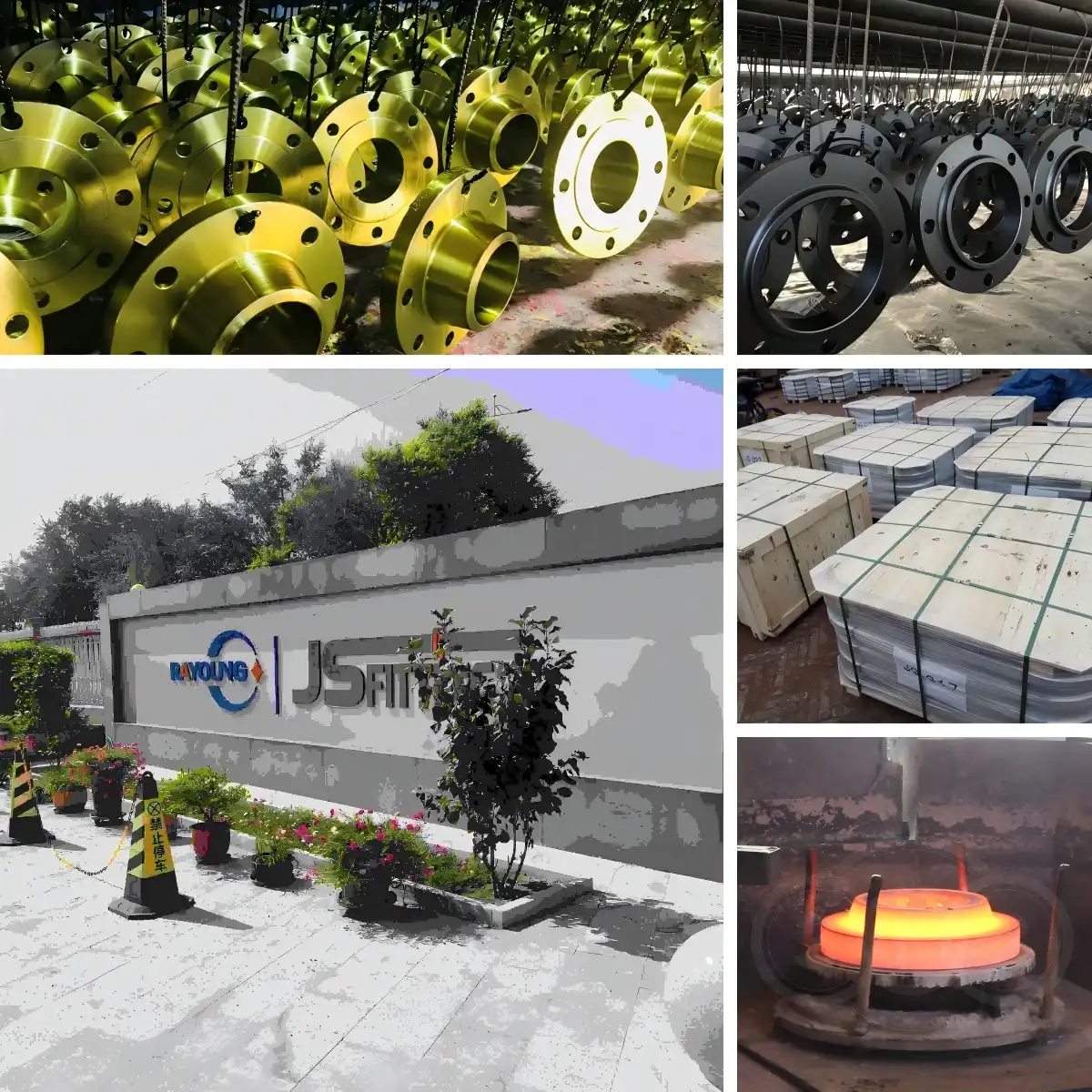
References
1. American Petroleum Institute. API Specification 6A: Specification for Wellhead and Christmas Tree Equipment. 21st ed. Washington, DC: API Publishing Services, 2019.
2. American Society of Mechanical Engineers. ASME Boiler and Pressure Vessel Code, Section VIII: Rules for Construction of Pressure Vessels. New York: ASME Press, 2021.
3. Brooks, Charlie R. Heat Treatment, Structure and Properties of Nonferrous Alloys. Materials Park: ASM International, 1982.
4. Gulbins, Edward. Counterfeit Products and Product Piracy: Legal and Technical Aspects. Munich: Carl Hanser Verlag, 2005.
5. Handbook Committee. ASM Handbook Volume 12: Fractography. Materials Park: ASM International, 1987.
6. International Organization for Standardization. ISO 9001:2015 Quality Management Systems - Requirements. Geneva: ISO Press, 2015.

Need a quote? Want to see samples? Just say hello. We’re friendly. We’re fast. And we’re ready when you are.
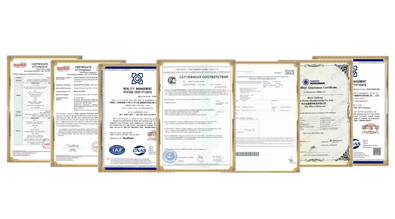
Welcome to RAYOUNG – Strong Pipes, Stronger Promise
